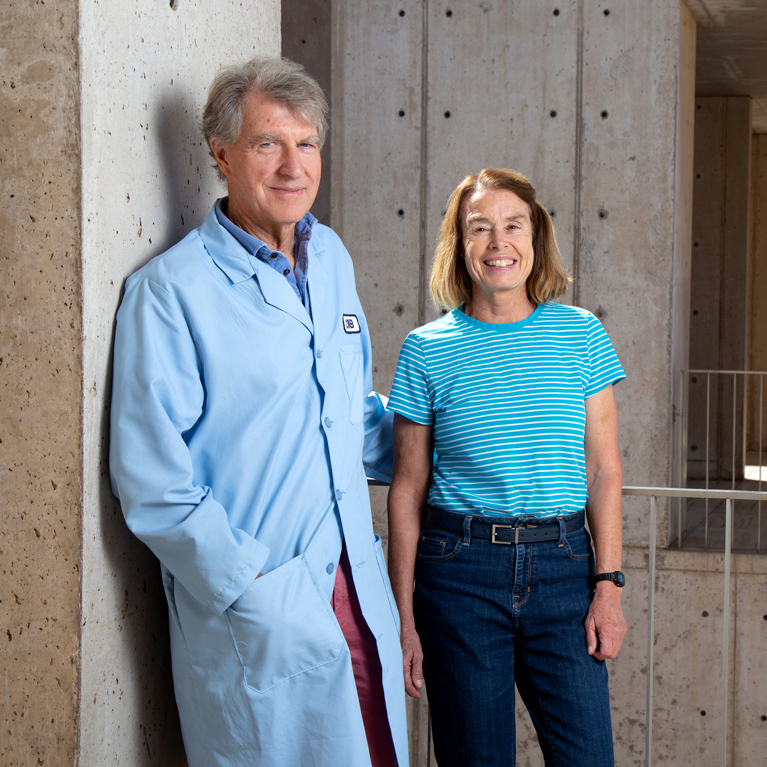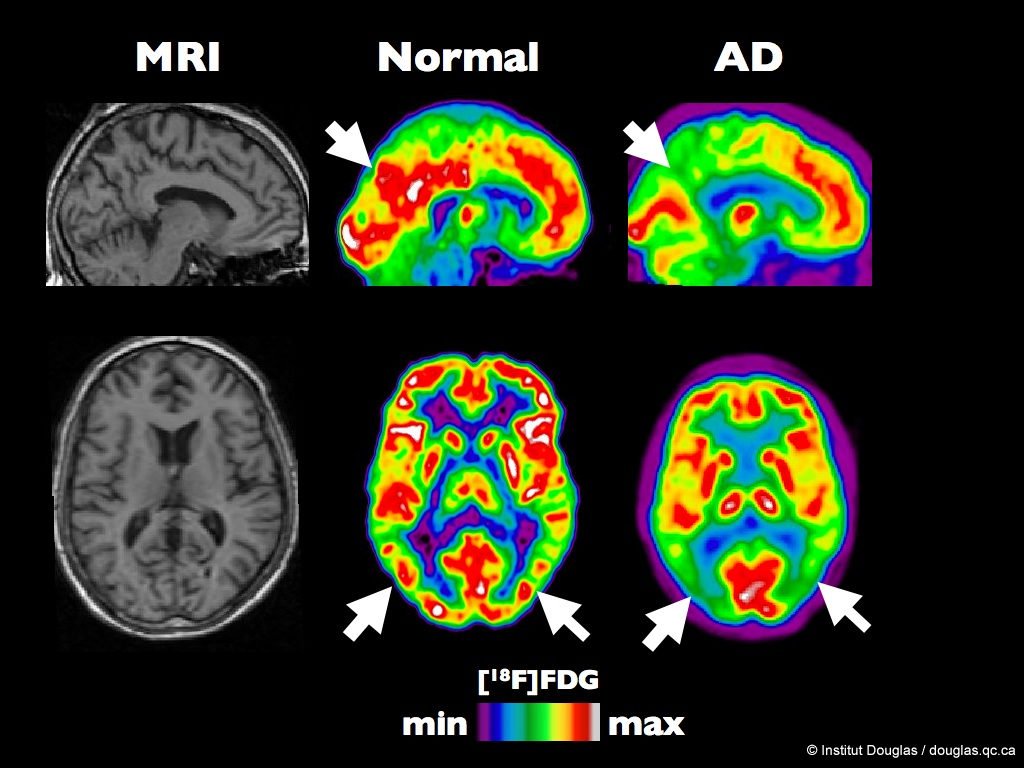
"Within the bustle and organized chaos of Denver's massive airport, an 80-year-old man with Alzheimer's disease named Jerry Ellingsen was found wandering alone after traveling with his small dog from Fort Myers, Florida. Jerry didn’t know where he was or why he was in Denver. Police tried contacting his daughter and wife, neither of whom would pick him up, so officers were forced to call an ambulance that took him to a nearby hospital."
Posts tagged as “AD”

"New Salk research has now identified a unique subclass of these compounds, dubbed geroneuroprotectors (GNPs), which are AD drug candidates and slow the aging process in mice.
From these, the team synthesized three AD drug candidates based upon their ability to protect neurons from multiple toxicities associated with the aging brain."

"My first car got 11 miles per gallon. It weighed two and a half tons. Cars like this inspired the expression “big as a Buick.” My friends and I called it, affectionately, The Lead Sled. I once parked The Lead Sled at a train station in East Chicago, Ind., and didn’t even bother locking it up. Who would steal The Lead Sled? But what thieves might not consider, vandals could not resist. Returning from the Loop way past witching hour, I found The Lead Sled void of all glass: windshields, windows, headlights, all smashed. Stunned, I phoned my dad. He asked no questions. He laid no blame. 'I’m on my way,' he said."

"Alzheimer's disease (AD) is a progressive, neurodegenerative condition in which individuals exhibit memory loss, dementia, and impaired metabolism. Nearly all previous single-domain studies to treat AD have failed, likely because it is a complex disease with multiple underlying drivers contributing to risk, onset, and progression. Keine et al. explored the efficacy of a multidomain therapy approach based on the disease risk factor status specific to individuals with AD diagnosis or concern. Their findings indicate previously unidentified connectivity between AD risk factors, suggesting that treatment regimens should be tailored to the individual, and should be multi-modal to simultaneously return risk factors to a normative state. If successfully performed, the possibility to slow progression of AD and even reverse aspects of cognitive decline may become achievable."
"Imagine looking in the mirror and becoming terrified when you see a stranger who looks frighteningly old, but it’s actually you. This happens to Alzheimer’s patients every day, and it’s something Bruce Barnet calls the 'Stranger in the Mirror' syndrome.'Most Alzheimer’s patients lose their short-term memories and their self-image is usually one from their youth,' explains Mr. Barnet, (a certified caregiver) whose father-in-law succumbed to the disease more than 20 years ago. 'When they look in the mirror, they see a stranger and often panic, which causes extreme emotional distress or even a fall and an injury,' said Mr. Barnet."
![]()
"Holiday celebrations are often joyous occasions that families look forward to all year, but they can be challenging for the millions of people living with Alzheimer’s disease and dementia, according to the Alzheimer’s Association. Alzheimer’s disease affects an estimated 5.7 million people in the U.S., and more than nearly 16 million people care for someone with the disease. 'The hustle and bustle that accompanies the holidays can be stressful for people living with Alzheimer’s,' said Monica Moreno, senior director, care and support, Alzheimer’s Association. 'Changes in the daily routine, large gatherings and noisy environments – all holiday hallmarks – can create extra anxiety for someone living with Alzheimer’s and other dementias.'"

"Scientists have conducted a lot of research on the disease, but there’s still no simple explanation for it. But James Truchard wants to change that. Truchard is former president and CEO of the multi-billion-dollar Austin-based tech company, National Instruments. He recently gave $5 million to the University of Texas at San Antonio College of Sciences for the new Oskar Fischer Project; the money will be divvied among the scientists who can sufficiently explain what causes Alzheimer’s. Truchard says the idea for the prize money came to him after witnessing how his first wife lost her memory and struggled with her mental health over a period of 18 years, before she eventually died from an aneurysm."
![]()
n the fight against Alzheimer’s disease, early detection is particularly important.
If the still incurable dementia is diagnosed at an early stage, drugs can at least slow down its progression.
The researchers trained their artificial intelligence using data from the Alzheimer’s Disease Neuroimaging Initiative (ADNI).
Among other things, this data collection contains thousands of PET images of Alzheimer’s patients in very early stages of the disease.
Sohn describes the result as follows: “The algorithm was able to reliably identify every case that later led to the outbreak of Alzheimer’s disease”.

Conditions13 Common Illnesses That Have Been Linked to Alzheimer’sAlthough we don’t know a lot about the causes of Alzheimer’s disease, having the following conditions may raise your risk or make your symptoms worseAnemia Chill Chillz/Shutterstock This common blood disorder is defined by a decline in red blood cells.
These cells transport oxygen, which is why a common symptom is persistent fatigue.
Some studies have found a connection between anemia and an increased risk of dementia in older adults.
The concern is that by depriving the brain of oxygen, anemia could lead to the type of damage seen in people with Alzheimer’s.
Check out the 9 most powerful eating habits to reduce your risk of Alzheimer’s.

"A team of Salk Institute researchers led by President Rusty Gage has been awarded $19.2 million over eight years by the American Heart Association-Allen Initiative in Brain Health and Cognitive Impairment to investigate mechanisms underlying Alzheimer's disease and aging-related cognitive decline and uncover new therapies. This bold venture will comprehensively analyze interactions between five areas key to brain health: proteins, genes, metabolism, inflammation and epigenetics. 'At the Salk Institute, we have devised a completely new way of approaching Alzheimer's and aging research,' says Gage, a world-renowned researcher in neuroscience and genetics who holds the Vi and John Adler Chair for Research on Age-Related Neurodegenerative Disease. 'With the generous support of The Paul G. Allen Frontiers Group, the American Heart Association and other philanthropic donors to this initiative, we believe we can make significant progress in the diagnosis and treatment of Alzheimer's and other age-related cognitive diseases.'"
